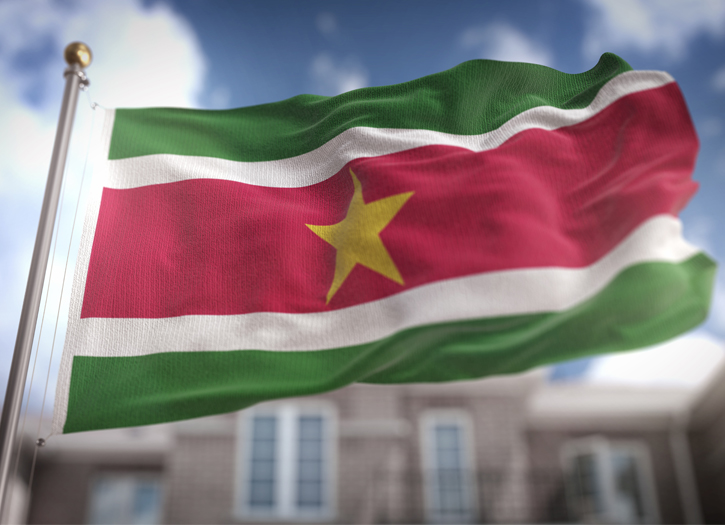The virus was confirmed to have reached Suriname on 13 March 2020. The case was a person who travelled from the Netherlands the previous week. On 3 April 2020, one person died. On 3 May 2020, all nine cases had recovered. On 18 May, an eleventh case was identified.
On 13 March, Suriname’s Vice President Ashwin Adhin announced the first confirmed case of coronavirus in the country: an individual who arrived from the Netherlands multiple days prior to testing positive. As a result, the country announced that its borders and all airports would shut down at midnight on 14 March.On 16 March, all schools were closed to prevent further spread.On 24 March, Antoine Joly, the French ambassador to Suriname, became the 8th victim.On 28 March, a partial lock-down was announced with a curfew between 20:00 and 06:00 by President Dési Bouterse.
On 2 April, three patients were released from the hospital after testing negative twice for the virus. They would remain under house quarantine for another week. 274 people, including all healthcare workers had been tested. Minister Stephan Tsang of Trade, Industry and Tourism warned of difficult times ahead. The country was already in a financial crisis made worse by a CCC+ (junk) rating by Standard & Poor’s. On 13 April, two more patients were declared recovered.The population was still confronted with widespread price gouging. The increased prices were not just related to the COVID-19 pandemic, but were also made worse by the Currency Law which passed on 24 March making transactions in foreign currencies illegal.
On 16 April, education lessons would start on broadcasting on television, because it had been unclear when regular classes could resume.Minouche Bromet of the Ministry of Health said that wearing a mask if you were healthy would not be necessary, because there was no community spread in Suriname. On 17 April, the repatriates of the 2 April flight from Miami, were released from quarantine after an exit screening. 41 people were placed in quarantine. On 20 April, Jerry Slijngard said that the group still in quarantine tried to illegally cross the border.
On 11 August, Santokhi announced a series of new measures, requiring the use of face masks, reducing operating practices of restaurants, and prohibiting groups of 5 or people from gathering except for work, education, religious gatherings and funerals. The national curfew would be from 21:00 to 5:00 everyday until 23 August.On 19 August, Health Minister Ramadhin told reporters that the mortuary Wanica Regional Hospital had already reached its maximum capacity, and was critical of persons who continued to ignore measures put in place to curb the spread.
A soft lock down has been announced from 4 June 18:00 until 12 June 06:00. Changed to total lockdown from 8 June to 21 June. People will only be allowed on the street on certain days based on their surname.From Sunday 21 June onwards, the following measures are in effect in Suriname:Lock down from 21:00 until 05:00. As of 6 July, 22:00 to 05:00. From 26 July until 10 August, a lock down from 21:00 until 05:00. Hotels, casinos, churches, sport centres etc. remain closed. Other businesses can reopen. As of 6 July, all can reopen with social distancing measures. From 26 July until 10 August, closed again. Restaurants are take-away only. Internal flights are possible under restrictions. Limited visitation of the elderly is possible.
A National Public Health Response-team was set up in January 2020 who started to develop a response plan led by the director of the Ministry of Public Health, Cleopatra Jessurun. In cooperation with the Pan American Health Organization the Central Laboratory (Bureau voor Openbare Gezondheidszorg – B.O.G.) started to develop a test system for the virus which was completed on 5 February, and train healthcare workers. Tests were also being carried out at the Medical Microbiological Laboratory of the Academic Hospital Paramaribo. To effectively manage the spread of the COVID-19 (SARS-Cov-2) and minimize the negative effects of the crisis on Public Health, Security and Economy, the government of Suriname made use of the Grondwet (‘Constitution’) article 72c to announce a Civil Exceptional Status and passed the Law ‘Exceptional Condition’ COVID-19 in Parliament.








Add Comment